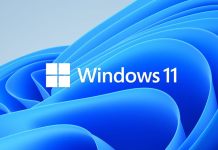In some ways, it shows the delicate relationships tech companies have with each other. Or maybe it simply highlights that companies are willing to collaborate and work together despite differences in other areas. On the one hand, Microsoft is working with AMD on an important project, while on the other hand is pushing users towards AMD’s rival on Windows 11. We will start with the development of an ARM processor. A new LinkedIn job ad for Microsoft seems to show the company is working on its own processor. It is unlikely this is all happening entirely in-house, so the rumors of AMD’s involvement seem legit. Here is what the job post says: “We are seeking a director of SoC Architecture to lead our SoC Technologies Definition. This exciting opportunity requires strong technical knowledge and exceptional leadership. You will drive the Architecture in conjunction with Si Partners organizations of multiple technologies including but not limited to performance and power efficiency, thermal management, battery life, security, manageability, memory and storage, process integration and packaging to deliver exceptional product experiences across our entire portfolio. Working collaboratively with a diverse team of business, engineering, and product design experts, you will define a multi-year technology roadmap and identify emerging technologies to innovate new product features and capabilities. ?You will build internal and external partnerships to define and enable the SoC technologies portfolio for future generations of products.”
Intel Recommendation
Traditional chipmakers are under increasing pressure as tech giants like Apple and Samsung are turning to their own in-house options. If Microsoft were to take a similar path, chip companies would lose important revenue. Qualcomm will take the brunt of the fallout as Microsoft is clearly looking to move Windows on ARM from the company and to its own in-house processors. If that is a success, Microsoft could expand its own chipmaking capabilities. Could that mean the traditionally rock solid partnership between Microsoft and Intel will fade? Maybe, but at the moment Microsoft is still fully backing Intel. So much so, the company is recommending Intel’s EVO chips for Windows 11. In the recommendations section of the Windows Resource Center (via Neowin), Microsoft says the following about Intel EVO: “Look for the Intel Evo badge to know you can count on a laptop to have a great combination of purposeful technologies optimized for the experience you crave.” So, Microsoft is actively recommending Intel over rivals like AMD when it comes to Windows 11. If the proprietary path the company seems to be taking pays off, will that kind of endorsement continue in the future? Tip of the day: The Windows 10 Clipboard history feature provides the functionality across device, space, and time, letting you copy on one computer and paste the text days later on a different PC. All of it is possible via the Windows 10 clipboard manager, which lets you view, delete, pin, and clear clipboard history at will. In our tutorial we show you how to enable the feature, clear clipboard history, and enable/disable clipboard sync to meet your preferences. You can also create a clear clipboard shortcut for quick removal of stored content.



